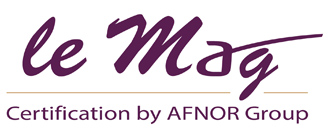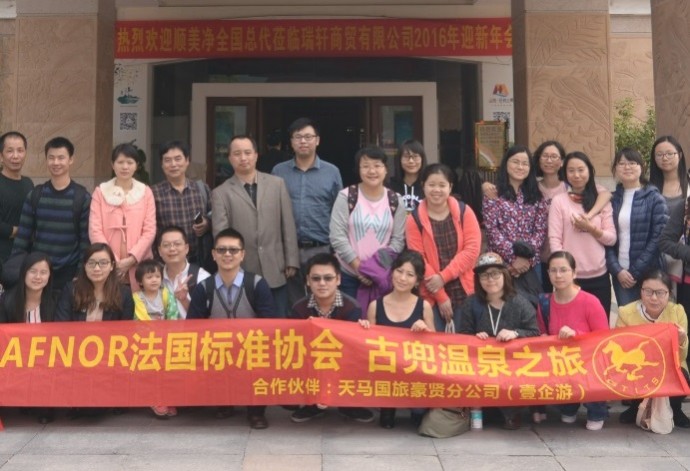With a population of over one billion, 56 nationalities, 7 languages and numerous dialects, China is a country of very diverse cultures and has its own codes of conduct. Jenny Lebot Fei, AFNOR Group Representative in China, tells us more. Invaluable pointers for Europeans who may want to set up business there. Article published in French in the January-February 2017 issue of Classe Export magazine.
Business development in China, is it a risky undertaking?
Ten years ago it was really difficult for a French person to live and work in China. Since then the country has opened up, many Chinese people have visited or even lived in France. And so now it’s easier. Nevertheless there are important codes to be aware of, two of which are essential in my view. The first is that any Chinese person you speak to must not “lose face”. This means for example that you must not point out a mistake, even a small one, in the presence of a superior or an audience. If you do so, you lose any hope of developing a relationship, or “Guān Xì” in Chinese.
The second is that politics is a very sensitive subject. There are historic rivalries between the country’s regions, legacies of the colonial era in particular, and the situation is constantly changing. You therefore need to stay informed, but I advise avoiding the subject. China is a large country but there are invisible barriers. For example, speaking with a pronounced Western Chinese accent can be a drawback if you need to work in Hong Kong. I would therefore advise Europeans to choose local partners with this variable in mind.
Can ignorance of local practices be a disadvantage?
Yes, but we shouldn’t get hung up about it either. In my case, my background is hard to identify. I was born in Shanghai and then emigrated to Hong Kong, a former British colony which has retained a somewhat “superior” mind-set; I lived in France and now I’ve come back to China, working for a French company. People are always wondering about my origin, my accent. So I often start a discussion with a quick presentation of my career path and this creates a conducive, more relaxed atmosphere. In general, if you feel at a loss in your dealings with the Chinese, I recommend being very humble, for example by apologizing: “I’m so sorry, I don’t know your culture very well, please could you help me understand?” This works well.
What might shock a European over working methods?
The pace, undoubtedly. Here people work at breakneck speed, seven days, and round the clock. So you shouldn’t be surprised if a customer phones you at the weekend. A far cry from the French debate over the “right to disconnect”! Use of social media of the WeChat type is very widespread and allows users to bypass conventional communication channels such as email. Ultra-connectivity can therefore be an advantage in terms of developing relationships. You have to make yourself available, be willing to adapt when you encounter behaviours that may be viewed as excessive in Europe. This advice also applies to social occasions, for example the tradition of toasting throughout a meal. This is a very friendly gesture, a mark of respect in a professional world. So I recommend making the effort. The Chinese are however starting to accept that we can’t always drink as much alcohol as may be required on these occasions. Here again, this needs to be said beforehand.
What specific features do you notice about how businesses operate?
Here, there are a lot of joint ventures. The risk, in this situation, is to think that holding a majority stake is sufficient to control the activity. This is not how it works, I’ve already seen this with a certification customer. Absence of employees on the ground is a disadvantage faced with a local shareholder and its teams. You therefore have to assume your position, physically. In invitations to tender, many things are done off the record since practices are dictated by unwritten rules. We therefore need to pay great attention. And here, we are attentive, so that we can win audit training contracts or certification projects in the fields of quality, safety, environment and railway and automotive systems. Eleven years after our establishment in China, we have become the leading IRIS (railway) certification body and this sends a positive signal for our development. The way we organize our territorial network has certainly helped, with one hundred people spread over Shanghai, Guangzhou, Chengdu, Fuzhou and Changsha.
[button content=”More about AFNOR in China… ” color=”yellow” text=”black” url=”http://www.afnor.cn/cn” openin=”_blank”]
[button content=”Read the full interview on line (in French)… ” color=”yellow” text=”black” url=”http://www.classe-export.com” openin=”_blank”]





